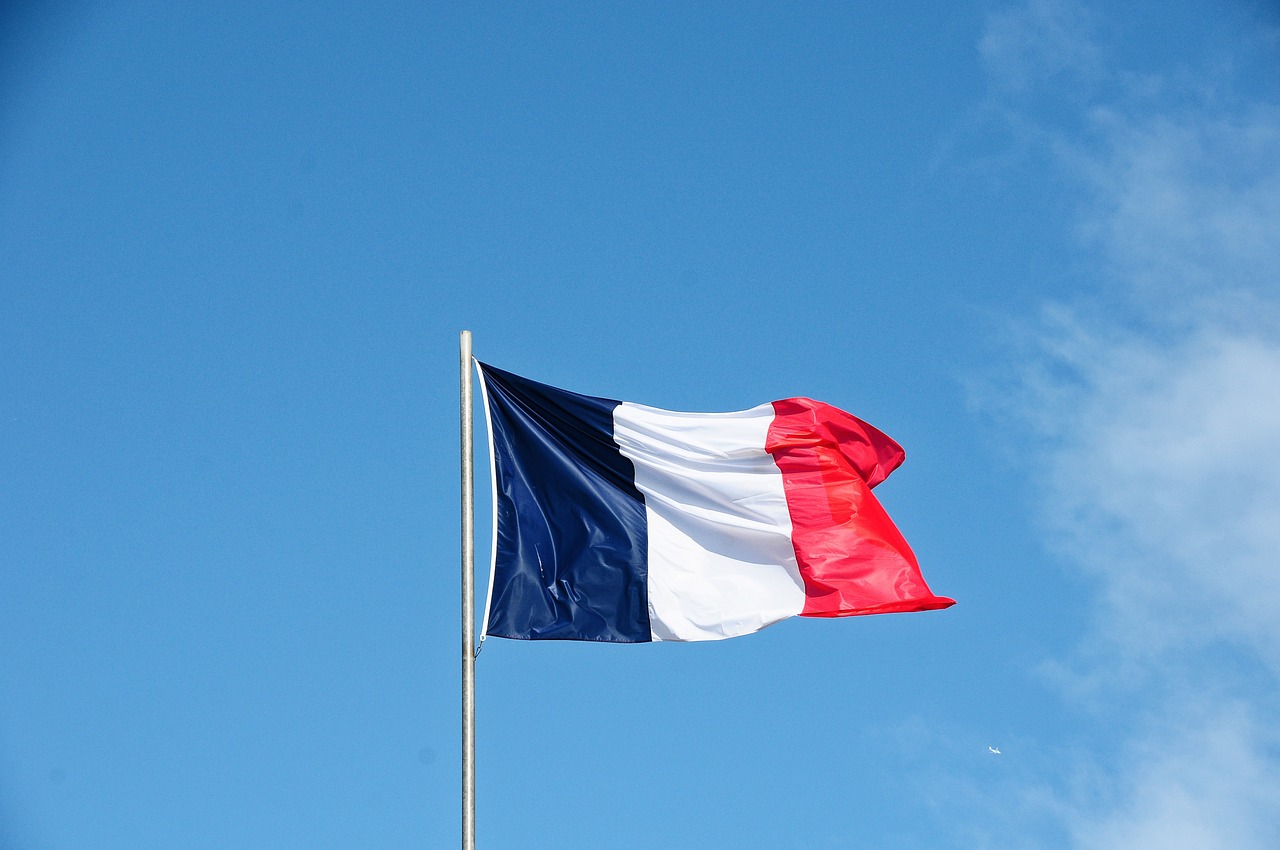The Historical Context of the French Revolution
The French Revolution was a pivotal period in history. Understanding its historical context is crucial to grasp the causes and consequences of this significant event that shaped modern France and influenced revolutions worldwide.
France in the 18th century was characterized by absolute monarchy, social inequality, and economic instability. The political structure favored the nobility and clergy, leading to discontent among the common people.
The French society was divided into three estates, with the clergy and nobility enjoying privileges while the commoners faced poverty and oppression. This stark social divide fueled resentment and laid the groundwork for revolutionary sentiments.
France faced economic hardships due to wars, extravagant spending by the monarchy, and poor harvests. High taxes burdened the lower classes, exacerbating their struggles and contributing to the growing unrest.
Enlightenment philosophies promoting liberty, equality, and fraternity gained popularity in France. Thinkers like Rousseau and Voltaire challenged traditional beliefs, inspiring calls for reform and revolution among the populace.
The success of the American Revolution against British rule inspired the French people, showcasing the possibility of overthrowing oppressive regimes and establishing democratic principles. It fueled aspirations for freedom and democracy in France.
France's financial crisis worsened, leading King Louis XVI to implement reforms and convene the Estates-General. However, these efforts failed to address the deep-rooted issues, triggering further discontent and paving the way for revolutionary actions.
Prominent figures like Robespierre, Danton, and Marat emerged during the revolution, advocating for radical changes and leading the masses. Their ideologies and actions played a crucial role in shaping the course of the revolution and its outcomes.
The French Revolution resulted in the overthrow of the monarchy, the rise of the Republic, and significant social and political transformations. Its legacy continues to influence modern governance, human rights, and revolutionary movements globally.
Q: What were the main causes of the French Revolution?
A: The French Revolution was primarily caused by social inequality, economic hardships, political corruption, and the influence of Enlightenment ideas.
Q: How did the French Revolution impact France and the world?
A: The French Revolution led to the end of the monarchy in France, the rise of democratic principles, and inspired revolutions in other countries, shaping modern governance and human rights.
Q: Who were some key figures in the French Revolution?
A: Prominent figures like Maximilien Robespierre, Georges Danton, and Jean-Paul Marat played significant roles in advocating for radical changes and leading the revolutionary movements.
Q: What were the long-term effects of the French Revolution?
A: The French Revolution had lasting effects on modern society, including the establishment of democratic principles, the rise of nationalism, and the promotion of human rights on a global scale.

Political Landscape of France
The French Revolution was a pivotal period in history. Understanding its historical context is crucial to grasp the causes and consequences of this significant event that shaped modern France and influenced revolutions worldwide.
France in the 18th century was characterized by absolute monarchy, social inequality, and economic instability. The political structure favored the nobility and clergy, leading to discontent among the common people.
The monarchy held absolute power, with King Louis XVI reigning over a system that prioritized the interests of the aristocracy and clergy. The commoners, comprising the majority of the population, had little to no say in governance and were burdened by heavy taxation.
This imbalance of power and privilege created a simmering discontent among the populace, especially as the lower classes struggled to make ends meet while the elite lived in luxury. The lack of political representation for the common people fueled resentment and sowed the seeds of revolution.
As tensions escalated, calls for political reform grew louder. The rigid political hierarchy that favored the nobility and clergy faced increasing scrutiny, paving the way for revolutionary movements that sought to challenge the existing power structures and usher in a new era of governance.
The political landscape of France was a powder keg waiting to explode, with the disenfranchised masses yearning for a system that respected their rights and addressed their grievances. The stage was set for a dramatic upheaval that would reshape the course of history.

Social Conditions of the Time
The French Revolution was a pivotal period in history. Understanding its historical context is crucial to grasp the causes and consequences of this significant event that shaped modern France and influenced revolutions worldwide.
France in the 18th century was characterized by absolute monarchy, social inequality, and economic instability. The political structure favored the nobility and clergy, leading to discontent among the common people.
The French society was divided into three estates, with the clergy and nobility enjoying privileges while the commoners faced poverty and oppression. This stark social divide fueled resentment and laid the groundwork for revolutionary sentiments.
France faced economic hardships due to wars, extravagant spending by the monarchy, and poor harvests. High taxes burdened the lower classes, exacerbating their struggles and contributing to the growing unrest.
Enlightenment philosophies promoting liberty, equality, and fraternity gained popularity in France. Thinkers like Rousseau and Voltaire challenged traditional beliefs, inspiring calls for reform and revolution among the populace.
The success of the American Revolution against British rule inspired the French people, showcasing the possibility of overthrowing oppressive regimes and establishing democratic principles. It fueled aspirations for freedom and democracy in France.
France's financial crisis worsened, leading King Louis XVI to implement reforms and convene the Estates-General. However, these efforts failed to address the deep-rooted issues, triggering further discontent and paving the way for revolutionary actions.
Prominent figures like Robespierre, Danton, and Marat emerged during the revolution, advocating for radical changes and leading the masses. Their ideologies and actions played a crucial role in shaping the course of the revolution and its outcomes.
The French Revolution resulted in the overthrow of the monarchy, the rise of the Republic, and significant social and political transformations. Its legacy continues to influence modern governance, human rights, and revolutionary movements globally.

Economic Challenges
The faced by France during the 18th century were significant factors that contributed to the eruption of the French Revolution. The nation was burdened with a series of economic hardships that exacerbated the existing social inequalities and political discontent.
Wars, particularly the costly involvement in the Seven Years' War and later the American Revolutionary War, drained the treasury and strained the economy. The extravagant lifestyle of the monarchy, especially King Louis XVI and his queen, Marie Antoinette, further deepened the financial crisis.
Poor harvests and agricultural failures led to food shortages and soaring prices, impacting the common people the hardest. The high taxes imposed by the monarchy, often evaded by the nobility and clergy, weighed heavily on the lower classes, pushing them further into poverty and desperation.
Furthermore, the outdated feudal system hindered economic growth and innovation, stifling the potential for progress and prosperity. The lack of a unified national market and the prevalence of trade barriers among regions limited economic development and perpetuated disparities.
These economic challenges not only strained the livelihoods of the commoners but also fueled resentment towards the ruling elite who seemed indifferent to the struggles of the populace. The financial instability and inequality laid the groundwork for revolutionary movements that sought to address the systemic issues plaguing French society.

Influence of Enlightenment Ideas
The Enlightenment era had a profound impact on the course of the French Revolution, igniting the flames of change and revolution among the French populace. Philosophers like Rousseau and Voltaire challenged the traditional norms and beliefs of society, advocating for concepts such as liberty, equality, and fraternity. Their ideas resonated with the common people, inspiring them to question the existing social and political structures and demand reform.
Enlightenment ideals emphasized the importance of reason, individual rights, and the power of the people in shaping their own destiny. The belief in rationality and the rejection of blind obedience to authority fueled the revolutionary spirit in France, encouraging citizens to stand up against oppression and fight for their rights.
The Enlightenment also promoted the concept of a social contract between the government and the governed, asserting that rulers should serve the interests of the people and uphold their natural rights. This notion challenged the absolute authority of the monarchy and laid the intellectual groundwork for the revolutionary movements that swept across France.

Impact of American Revolution
The American Revolution had a profound impact on the course of the French Revolution. It served as a beacon of hope and inspiration for the French populace, demonstrating that oppressive regimes could be overthrown and replaced with democratic principles. The success of the American colonies in breaking free from British rule ignited a fire of revolution in France, stirring aspirations for liberty, equality, and democracy.

